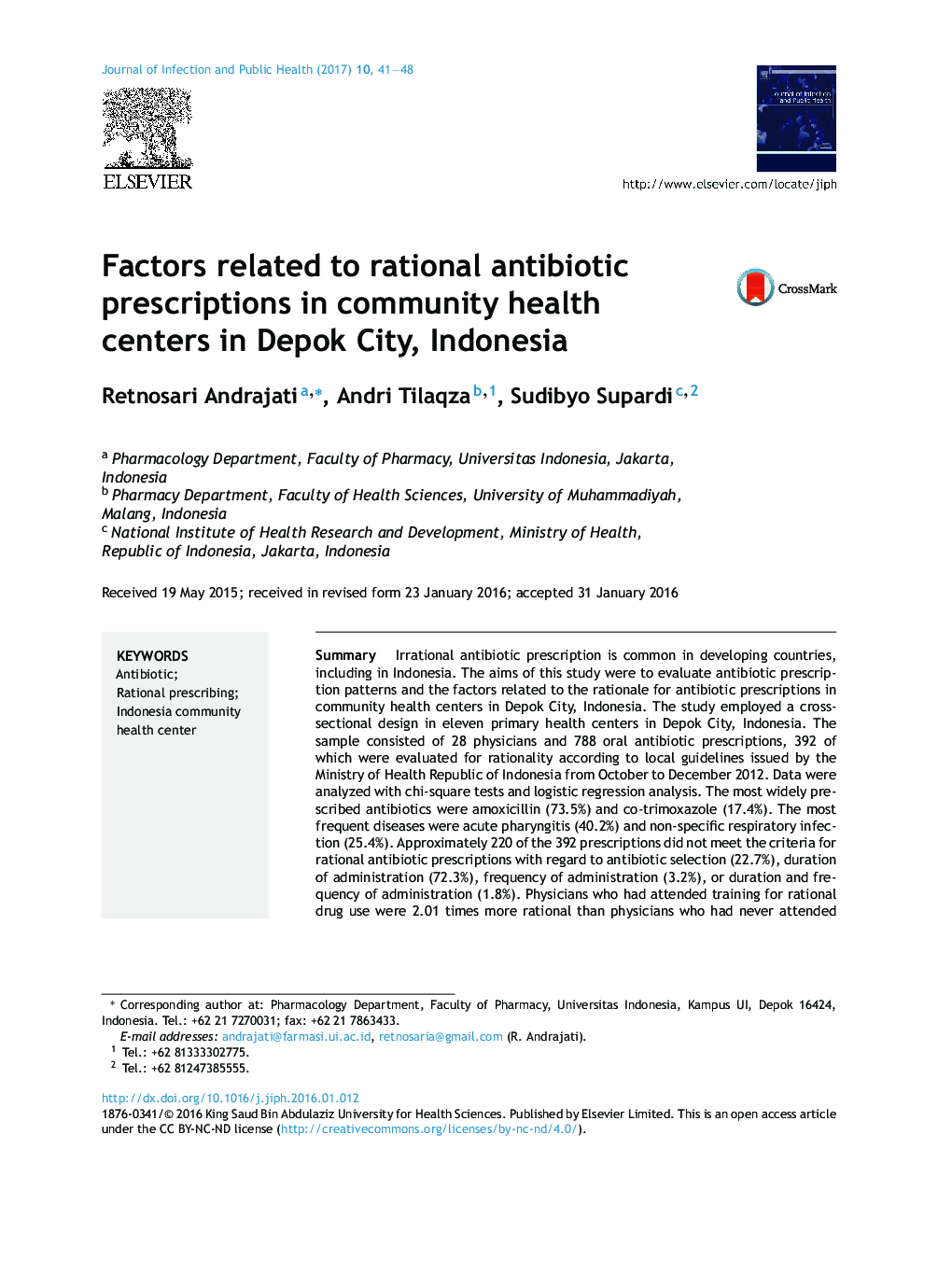| Article ID | Journal | Published Year | Pages | File Type |
|---|---|---|---|---|
| 5672820 | Journal of Infection and Public Health | 2017 | 8 Pages |
SummaryIrrational antibiotic prescription is common in developing countries, including in Indonesia. The aims of this study were to evaluate antibiotic prescription patterns and the factors related to the rationale for antibiotic prescriptions in community health centers in Depok City, Indonesia. The study employed a cross-sectional design in eleven primary health centers in Depok City, Indonesia. The sample consisted of 28 physicians and 788 oral antibiotic prescriptions, 392 of which were evaluated for rationality according to local guidelines issued by the Ministry of Health Republic of Indonesia from October to December 2012. Data were analyzed with chi-square tests and logistic regression analysis. The most widely prescribed antibiotics were amoxicillin (73.5%) and co-trimoxazole (17.4%). The most frequent diseases were acute pharyngitis (40.2%) and non-specific respiratory infection (25.4%). Approximately 220 of the 392 prescriptions did not meet the criteria for rational antibiotic prescriptions with regard to antibiotic selection (22.7%), duration of administration (72.3%), frequency of administration (3.2%), or duration and frequency of administration (1.8%). Physicians who had attended training for rational drug use were 2.01 times more rational than physicians who had never attended training. Physicians with a short working period (i.e., <7 years) were 3.95 times more rational in prescribing antibiotics than physicians who had been working for longer periods (i.e., >7 years). Most antibiotics were prescribed irrationally. Training for rational drug use and length of practice were factors related to the rationality of antibiotic prescriptions. Suitable interventions are urgently required to encourage the rational prescription of antibiotics in the PHCs.
